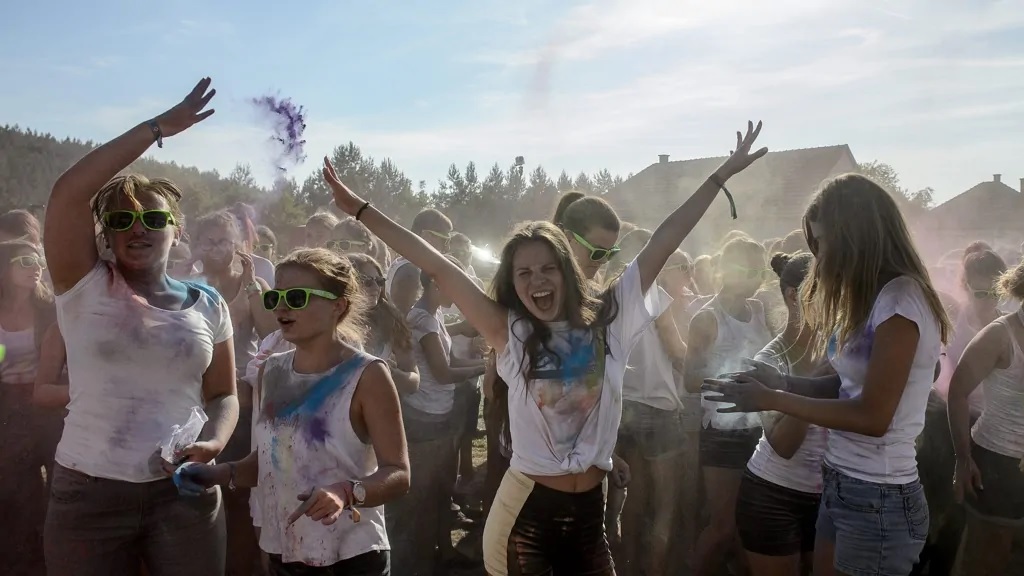It would be nice if the champions of the completely misunderstood inflammatory journalism finally understood this.
Sándor Czinkóczi took aim at the Budapest University of Technology (BME) University Student Representation article The author disparagingly reported that, among other things, the organizers did not allow condoms to be brought into the area of this year's freshman camp.
From Sanyi, all of this provoked expressions such as "quite a strange request" or "is it just some stupid joke" , and then came the boldly highlighted value judgement:
"From the answer of the president of the University Student Representation, it became clear that they really think that if young people don't have condoms, they won't have sex."
EHK President Kristóf Radácsi put it exactly as follows:
„It is indeed true that the rubber condom "plays a key role in the prevention of unwanted pregnancy and sexually transmitted diseases", however, in our opinion, avoiding sexual contact fulfills the same role a degree more effectively. The organizers of the freshman camps emphasize this in the camp and draw the freshmen's attention to the fact that sexual contact should be avoided during the camp."
However, Sanyi, proving his point, cited as a counter-example what he believed to be a very progressive and advanced British education - quoting two articles from the fall of 2023 - where cotton is distributed for free, free gonorrhea screening is held , and freshmen are made aware of the fact that during freshers' week (for them, the have) use a condom . Of course, they didn't do this with such fervor before, but in that wonderful society, the number of sexually transmitted diseases among 15-24 year olds has increased so much that the health sector is scratching its head.
"Gonorrhea reports have soared since the pandemic, with the UK Health Safety Agency (UKHSA) predicting a 50% rise in cases in 2022 compared to 2021"
- writes the BBC, also quoted by Sanyi, but Sanyi did not add that "according to health experts, the increase in the number of sexually transmitted infections since the pandemic was caused by reduced testing during lockdowns and greater social mixing." This was also written there, but as you know, they read quite selectively at 444. They prefer to write.

Facebook/Screenshot
However, before I explain what is wrong with Sanyi and his employer in my own opinion article, which is not disguised as news, let's look at the big picture of British higher education, including the freshman weeks.
"The drinking culture of freshers' week is exclusionary for underprivileged students," wrote the Daily Mail , thus presenting a perfectly inclusive, at the same time brainwashed society, where it is necessary to strive so that even poor children can get drunk for a whole week. Beautiful.
But fortunately, there are also more serious sounds that can be taken more seriously.
David James, a concerned father, stated the following at Capxon in the fall of 2023, just about when the articles cited by Sanyi were written:
"The experience of university studies in this country is becoming more and more boring. The continuous strike of university lecturers resulted in the cancellation of lectures, the removal of resources supporting students' increasingly independent studies from the department's websites, and what is worst of all, the students could graduate without knowing what class they had received.
It's hard to think of any other business that treats their customers this poorly and continues to bill their fees.
For many of my generation, college was a place of wonder—a rite of passage that took me from childhood to adulthood, opened me up to the beauty of knowledge, and prepared me for life. For too many young people today, it's an atomized place where they listen to lectures online from their bedrooms, have little meaningful contact with college professors, and accumulate lifelong debt. This neglect is scandalous and betrays the hope and optimism that so many students feel when they arrive on campus.”
And Lucy Robinson writes this on Inews:
“Freshmen week is a rite of passage for many university students. Pub crawls, drinking games and themed club nights – features of first university week flourished in the pre-coronavirus world, but with social distancing guidelines in place and nightclubs closed for the foreseeable future, universities are being forced to rethink how they welcome new students. And I hope it means the problem drinking culture in higher education will finally be addressed. (… ) Universities were given the opportunity to radically change student life and the discourse surrounding alcohol consumption. (…) This has long been considered problematic. According to a survey by the National Union of Students, 79 per cent of young people believed that getting drunk was a central part of the university experience, with 76 per cent saying they drank solely to get drunk.
I have experienced this myself. Before I started college in 2016, I had never been a heavy drinker, yet during freshman week it became clear to me that drinking beyond our limits equals fun. The talk of initiation ceremonies became the soundtrack of the student hostels; fainting was part of the fun; and watching people pass out while drinking was a daily occurrence.
Freshers week's legendary status created a place where excess was celebrated and expected. For students less interested in drinking, freshers week can be an intimidating and isolating experience. Refusing a drink or, worse, a night out is seen as spoiling the fun. When you're in a new city with new people, the thought of being ostracized is terrifying. It's no surprise that 70 percent of students, myself included, attribute high rates of alcohol consumption to peer pressure."
Rowing into domestic waters, it is worth noting that the customs of Hungarian freshman camps changed ten years ago, when the rape of the freshman camp of the ELTE Faculty of Teacher and Kindergarten became a national scandal. Of course, other strange things happened, in the same year, for example, the freshmen of the Buda campus of the Corvinus University of Budapest were subjected to humiliating tasks , including stuffed teddy bears in their bottoms, but it was clear that after the rape of the 19-year-old girl, they changed the camp customs in general.
"Already after the incident, it was felt that the organizers of university events across the country are much more careful, and since then it seems that erotic tasks have disappeared from everywhere and those who don't want to drink are not allowed to drink."
- wrote Eduline.
And then let's get back to what's wrong with Sanyi's sneering little book that doesn't even know acceptance!
Well, first of all, it is not mandatory to enroll in the BME, just as it is not mandatory to go there, and it is absolutely not mandatory to participate in the freshman camp.
Second: if the delinquent decides to go to the multi-day event strictly of his own free will, he must follow the rules. It's very simple, but Sanyi had a problem with the fact that she doesn't like the rules. Fortunately, neither he nor his commentators are in a position to make a decision.
Thirdly, we have to ask the question - and this is already trivial - do the organizers have the right to create their own set of rules during the camping of their own freshmen? The answer is obviously yes; they have the same right to it as the organizers of any other event (be it a concert, match or festival). If the students later decide that five, six, or thirty-six of them on their own responsibility , the University Student Representation will certainly not have a say in how many people keep the party going until dawn, whether they organize an orgy and who will participate.
Perhaps Sanyi would have done better if he had not intervened in the EHK's decision, since it is not a say. In particular, the idea that a freshman camp can last three days without sex is not to be laughed at, and the goal is not for drunken teenagers to riot and, if appropriate, rape a passed out girl or two.
With or without rubber.
Featured image: Young people sprinkle colored powder paint on each other while dancing at the freshman camp of the Faculty of Pedagogy and Psychology of the Eötvös Loránd University (ELTE) in Bükkszék on August 28, 2015. MTI Photo: Péter Komka













